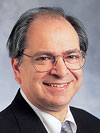Hadassah
Editor's Wrapup
Editor’s Wrapup: Protection
 It’s a little more complicated, but the Jewish people do have an equivalent to the question, “What would Jesus do?” Our version: “What should we do—that is, if we want to be true to ourselves as Jews?” This explains why the genocide in Sudan has come to be seen, especially by the Sudanese government and its defenders, as a Jewish issue.
It’s a little more complicated, but the Jewish people do have an equivalent to the question, “What would Jesus do?” Our version: “What should we do—that is, if we want to be true to ourselves as Jews?” This explains why the genocide in Sudan has come to be seen, especially by the Sudanese government and its defenders, as a Jewish issue.
But if American Jewish activists constitute a large bloc trying to address the issue of African refugees, the situation for Israel is more complex. As the only Western-style democracy with an African border, it has become a magnet for refugees who believe they will get better treatment in the Jewish state than anywhere else in the neighborhood. While Israeli officials fear a refugee flood and have detained or deported some who managed to get into the country, many Israeli activists have stepped forward and, in the name of Jewish memory, tried to make the Africans feel at home.
This month, in a special section beginning on page 12, Hadassah Magazine presents a series of articles on the refugee issue and the Jewish state’s response.
Perhaps because the world is so full of grays, many questions defy easy answers. This goes for big issues like the handling of refugees and for smaller questions as well. Adam Dickter didn’t realize the ethical quandary he would face when he agreed to accept payment for ensuring that a synagogue in his neighborhood had a weekday morning minyan. After he began “working,” it struck him that he was taking money for performing a mitzva and considered how he might use his earnings in a way that expressed his values. His essay, “Do the Right Thing,” begins on page 58.
For Elin Schoen Brockman, the question was whether selling two prized paintings that had belonged to her parents would honor their memory. It was only when she and her son watched the paintings sold at Sotheby’s that the answer to “What should we do?” became clear.
—Alan M. Tigay










 Facebook
Facebook Instagram
Instagram Twitter
Twitter
Leave a Reply